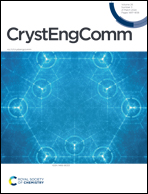The optimal high-temperature piezoelectric cuts of α-BiB3O6 crystals and their fatigue behaviors at high-temperature and low-pressure
Abstract
High-temperature piezoelectric materials with good temperature stability are essential for various sensors fabrication. The monoclinic piezoelectric crystals α-BiB3O6 (BIBO) not only possess high resistivity, but also strong piezoelectric behaviors, and are promising for high-temperature sensing application. In this study, the temperature stability of electro-elastic coefficients of BIBO crystals was studied by using an impedance method. Results reveal that the piezoelectric coefficients d21 and d22 exhibited excellent temperature stability over the tested temperature range of 20–650 °C, and the variations were found to be <±5%. In addition, the optimal sensitive cuts relevant to the longitudinal extensional vibration mode (LE), face shear vibration mode (FS) and thickness shear vibration mode (TS) were designed, and the maximum piezoelectric coefficients values for the LE, FS and TS modes were 40.0, −20.6 and 37.8 pC N−1, respectively. Furthermore, the fatigue behaviors of the BIBO crystal cuts annealed at high-temperature of 650 °C and low-pressure of 5 × 10−3 Pa for 10–20 h were investigated, where the dielectric and piezoelectric properties were showing a slight decrease, relating to the formation of oxygen vacancies, as confirmed by the electron paramagnetic resonance (EPR) spectra. In total, the BIBO crystals obtained show stable piezoelectric behaviors with neglegible attenuation (<5%) after annealing treatment, indicating its merits for piezoelectric sensing over a wide temperature range under low-pressure environments.



 Please wait while we load your content...
Please wait while we load your content...